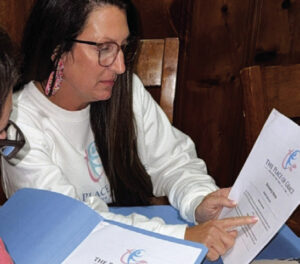Social media safety rules for our children
Last week I attended the North Alabama Technology Conference at Hazel Green High School in Madison County. The conference was for educators to brush up on their technology skills and learn new ways of teaching their students using the latest technological platforms.
The biggest takeaway I had from the conference was the ever-changing social media apps students have with their smartphones and how dangerous these platforms can be if used in the wrong manner. One of the keynote speakers focused on this issue and alarmed me – as a teacher, but most of all as a parent.
Facebook, Twitter, YouTube, Instagram and Pinterest could be considered the senior statesmen of social media. They are the most popular and have been around the longest. Facebook was founded in 2004, YouTube in 2005, Twitter in 2006, Instagram in 2010 and Pinterest in 2010. My 13-year-old son is older than all of these platforms.
While there are still a lot of teenagers on sites like Facebook and Twitter, many have moved on to more obscure sites. Why? To get away from parents and other adults. Obviously, our little boys and girls don’t want their parents to see what they are doing or saying on Facebook or Twitter. And, I can positively say, some parents would be shocked by what their little angels say and share on these sites.
It is our responsibility as parents to closely monitor our children’s phones and social media sites. We should demand their usernames and passwords and do routine surprise checks. Whatever limits a parent wants to set is their prerogative – age, age of consent, in high school, living at home, parents paying the bill, etc. It is not an invasion of privacy for me to check my child’s device or social media sites as long as I am responsible for them and paying their bills. It is my duty and responsibility as a parent to protect them from online bullies and predators. It is also my duty and responsibility to protect them from themselves.
Young people have either tried or succeeded at committing suicide because of online bullying. Bullying online can be overt and explicit or it can be anonymous and deceptive. Either way, it can be extremely damaging and dangerous to a young person’s psyche.
Online predators exist in many of the deep, dark corners of the Internet and social media sites. These people, usually older men, disguise themselves as teenage boys (or girls) and try to lure underage girls to meeting them (usually for a sexual purpose). They exist, they are dangerous, and they are good at what they do. Just ask law enforcement.
Protecting children from themselves may be the biggest issue when it comes to social media. Teenagers do some very impulsive and dumb things and have limited filters. Take a moment to reflect back when you were a teen. Now imagine you have all these tools at your disposal today – to chat with people anonymously, to send messages or pictures that will self-destruct in a few seconds, to shoot live video of yourself from wherever you are and more. That is what teens have today.
They can go on an app like Yik Yak or Flinch and say anything they want anonymously with little repercussion. Two bomb threats occurred at Franklin County schools last year as a result of one of these apps.
They can go on apps like Periscope or Meerkat and shoot live video to the whole world from wherever they are – at a ballgame, at school, a party, in a car, in the bedroom.
Today’s teenagers will have much of their lives documented on social media sites. The words they type and the pictures they upload will follow them forever – good and bad. Coaches will look at a player or potential recruit’s site to determine if they would be a good fit on a team or whether they should give them a scholarship. Colleges will look at student sites to determine if they want to admit them into their school. Employers will use these sites to do background checks to see if an applicant would make a desirable employee.
One racist or sexist comment, joke or picture can ruin a young person’s life for a long time. It only takes one.
We are just in the infancy of social media and the power these sites have for good and bad. As parents, we must set very strict rules with our children when it comes to the use of smartphones and apps. A few of mine are:
- control all passwords
- review any app before it is downloaded to the device
- routinely check the device, history and any social media site being used
- use the devices’ built-in parental restrictions
- set time limits for use
- all devices must be placed in our bedroom to charge after a certain time
Is that intrusive? You’re darn right it is. And that’s the way it should be.













